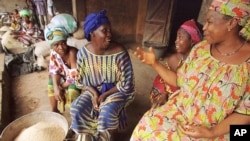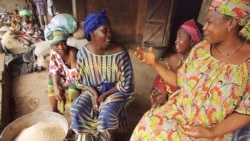Gender-based violence is a global epidemic. It crosses every social and economic class, ethnicity, race, religion, and education level. Defined as violence that is directed at an individual based on his or her biological sex, gender identity, or perceived adherence to socially defined norms of masculinity and femininity, gender-based violence may be directed against anyone, but women and girls are disproportionately impacted.
All forms of gender-based violence, including trafficking, femicide, honor killings, female genital mutilation/cutting, early or forced marriage, or psychological abuse such as harassment and intimidation, are unacceptable abuses of human rights. Taken together, they form an enormous obstacle to economic development and human progress.
That is why the United States Agency for International Development, or USAID, announced an $8 million increase in funding for the global effort against gender based violence. The funds will go toward new or already existing and successful programs, all of them tailored to target particular problems in specific regions.
In India, USAID will work to help further the work of Indian civil society and the government’s legislative actions on the issue by expanding the use of mobile technology to help identify and assist female patients of family planning and prenatal care clinics, who may be survivors of domestic violence.
A program in Zimbabwe will help prevent violence against adolescent girls, including those who are living with disabilities.
Ethiopia will see an increase in funds aimed at improving the capacity of law enforcement agencies that work to prevent child marriage and female genital mutilation.
In Guinea, an existing maternal health project to decrease domestic violence will be expanded, while funding will increase for the Government of Georgia’s National Action Plan to address domestic violence prevention and protection services, through education, intervention and assistance.
South Africa's flagship rape crisis and counseling centers will be expanded in hopes of mitigating the nation's epidemic of gender-based violence by changing the behavior of potential youth perpetrators. And in Kenya, USAID will build on an existing project to address gender-based violence through a civil education campaign.
Gender-based violence threatens the full enjoyment of human rights, as well as the fundamental stability, security, public health, and prosperity of entire societies. It must stop now.
All forms of gender-based violence, including trafficking, femicide, honor killings, female genital mutilation/cutting, early or forced marriage, or psychological abuse such as harassment and intimidation, are unacceptable abuses of human rights. Taken together, they form an enormous obstacle to economic development and human progress.
That is why the United States Agency for International Development, or USAID, announced an $8 million increase in funding for the global effort against gender based violence. The funds will go toward new or already existing and successful programs, all of them tailored to target particular problems in specific regions.
In India, USAID will work to help further the work of Indian civil society and the government’s legislative actions on the issue by expanding the use of mobile technology to help identify and assist female patients of family planning and prenatal care clinics, who may be survivors of domestic violence.
A program in Zimbabwe will help prevent violence against adolescent girls, including those who are living with disabilities.
Ethiopia will see an increase in funds aimed at improving the capacity of law enforcement agencies that work to prevent child marriage and female genital mutilation.
In Guinea, an existing maternal health project to decrease domestic violence will be expanded, while funding will increase for the Government of Georgia’s National Action Plan to address domestic violence prevention and protection services, through education, intervention and assistance.
South Africa's flagship rape crisis and counseling centers will be expanded in hopes of mitigating the nation's epidemic of gender-based violence by changing the behavior of potential youth perpetrators. And in Kenya, USAID will build on an existing project to address gender-based violence through a civil education campaign.
Gender-based violence threatens the full enjoyment of human rights, as well as the fundamental stability, security, public health, and prosperity of entire societies. It must stop now.






